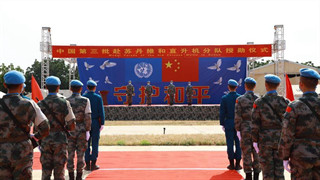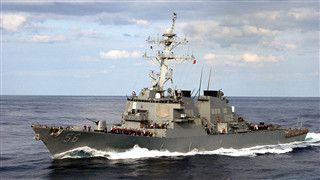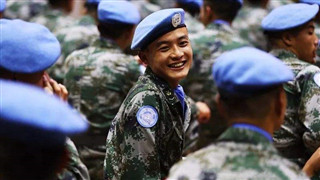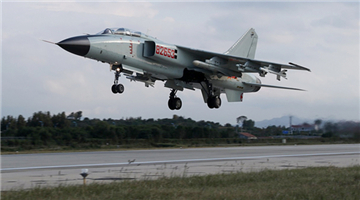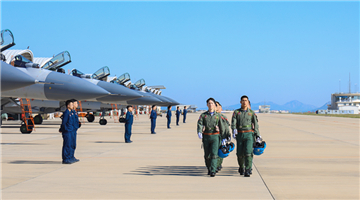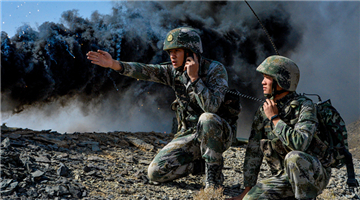By Huang Yanzhuang, Li Jianwen and Fan Yishu
One day in late September, in a military airfield of an aviation brigade of the air force under the PLA Southern Theater Command, a fighter jet was climbing higher after taking off from the runway for an air combat training, when suddenly, two dark shadows flashed by. After a "bang" sound, the fuselage shook violently and the engine started to work abnormally.
"Bird strike!" Wang Jiandong, pilot of the fighter jet, reported to the commanding officer immediately.
" Check the engine," the commander reminded him. Simultaneously, an alarm sounded in the cockpit and the thrust dropped sharply.
Wang pushed the throttle again, but the aircraft showed no sign of rising. "The aircraft loses its thrust and keeps falling." Wang, who has more than 2,100 hours of flying experience, judged that the in-flight shutdown might happen at any time. According to the air force aircraft special situation handling regulations, an emergency landing or parachuting should be implemented as appropriate if the engine shuts down at a height of less than 2,000 meters.
However, the altitude of the warplane was only 272.7 meters when the bird strike occurred and thus an emergency landing inside the airport was not possible. Wang calmly controlled the aircraft and turned right to fly away from the urban area. He piloted the aircraft to glide as far as possible. At the same time, he quickly searched for an open space to avoid the villages on the left and the downtown city in the front.
A hill appeared in right-front of the warplane, and Wang decisively headed towards that direction. At this time, the engine's in-flight shutdown warning immediately began flashing, and the display screen went black. Five seconds later, emergency backup power kicked in and the cockpit display screen was restored, which indicated that the engine had come to a full stop and the aircraft was completely powerless.
At this time, the aircraft kept on dropping rapidly, and any operation error might make it stall. In Wang's line of sight, the vector symbol of the air-sliding direction was still aligned with residential houses. "It feels like the ground has never been so clear." And the houses under the wing seemed within reach. The flight of just a few seconds made this experienced pilot feel so long.
"That's it!" A few paddy fields suddenly appeared ahead of the nose of the warplane, and Wang immediately made a choice. The aircraft continued to fall and Wang aimed it at the paddy fields with all his strength.
After keeping the aircraft's descending direction unchanged for six consecutive seconds, Wang finally pulled down the ejection handle and successfully parachuted. At this moment, the fighter aircraft was at an altitude of only 75.9 meters above the ground! The fighter aircraft fell to the ground three seconds later.
A follow-up investigation confirmed that the accident was caused by a bird strike on the engine of the fighter aircraft during take-off, causing an in-flight shutdown. A series of calm and accurate actions Wang Jiandong took in 37 seconds minimized ground damage without causing casualties.

